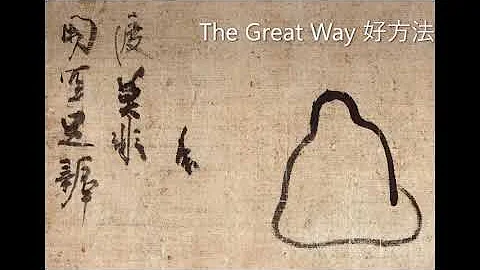Jigong , eminent monk of the Southern Song Dynasty (1130 or 1148-1209), his common name is Li Xiuyuan, his name is Huyin, his religious name is Daoji, he was a native of Yongning Village, Tiantai, Taizhou (now Tiantai County, Zhejiang Province). An eminent monk in the Southern Song Dynasty, later generations respectfully called him "Jigong Living Buddha".

He has a broken hat, a broken fan, broken shoes and dirty clothes, and he looks crazy. He first became a monk in Guoqing Temple, then lived in Hangzhou Lingyin Temple, and then lived in Jingci Temple. He is not bound by the precepts, is fond of wine and meat, and behaves like a madman, but he is a learned and virtuous eminent monk. He is listed as the fiftieth ancestor of Zen and the sixth ancestor of Yang Qi sect. He has written 10 volumes of "Quotations from Enfeng Feng" and many poems, which are mainly included in "Jingci Temple Chronicles" and "Taishan Fanxiang".
Jigong knew the medical skills of traditional Chinese medicine and cured many difficult and complicated diseases for the people. He likes to fight against injustice, calm people's disputes, and save people's lives. His various virtues such as helping those in need, eradicating violence, promoting good and punishing evil, etc., have left a unique and beautiful impression in people's minds.

Statue of Jigong
Jigong, whose common name is Li Xiuyuan (some say Li Xinyuan), was born in 1130 AD ( the fourth year of Jianyan ) or 1148 (the 18th year of Shaoxing) and died in the second year of Jiading (1209), Taizhou, Zhejiang was born in Yongning Village, Tiantai Mountain. [2] His ancestor Li Zunxu was Emperor Taizong's son-in-law and the governor of the Zhenguo Army. The Li family has believed in Buddhism for generations. His father Li Maochun and his mother Wang live in Yongning Village outside the north gate of Tiantai. Li Maochun was nearly forty years old and had no heirs. He worshiped Buddha devoutly and finally got this son. After Jigong was born, the abbot of Guoqing Temple gave him a common name to cultivate his affinity with Buddhism. [4] From then on, he had a deep relationship with Buddhism.
Although he is the distant grandson of Linhai Captain Li Wenhe, he has not contracted the bad habits of playboy . When he was a boy, he studied in Ruixia Cave, Chicheng Mountain, in the north of the village, and was influenced by Buddhism and Taoism. After his parents died, he first went to Guoqing Temple to worship Fakongben as his teacher. He received full ordination from the eminent monk Xiantang Huiyuan who had been the abbot of Guoqing Temple, named him Daoji, and inherited his robes. Then he visited Gion Temple Daoqing, Guanyin Temple Daojing, and finally went to Lingyin Temple in Hangzhou.

became a monk
The young Jigong grew up by the Zhe River and studied in Chicheng Mountain. Due to the influence of Tiantai Mountain "Buddhist Taoism" and the culture of the Li family who have been practicing Buddhism for generations, the idea of Fangwai came into being in a subtle way. In his weak years, he converted to Buddhism and took the Buddhist name Daoji. He first entered the Guoqing Temple, and then went to Lin'an (now Hangzhou, Zhejiang) to join the Lingyin Temple (now Hangzhou, Zhejiang) to join the Lingyin Temple. This "Fohai Zen Master" was Jigong. Give full precepts.
After Jigong became a monk, he was uncharacteristically different. He had erratic words and deeds, found it difficult to sit in meditation, did not like to chant sutras, was fond of wine and meat, dressed in rags, lived in the streets, and often did things to save lives and help the weak; he was so crazy that people called him "Ji Dian Monk". In the eyes of ordinary monks and laypeople, Daoji's words and deeds were out of line and he was considered not a normal person. Therefore, some monks complained to the abbot, saying that Daoji had violated the rules of the Zen sect and should be beaten and expelled from the monastery. Unexpectedly, Abbot Huiyuan declared: "The laws are designed for ordinary people, how can they be applied uniformly!" He also approved on a piece of paper presented by the leader: "Buddhism is so vast, how can it not tolerate a crazy monk!" Since then, no one has Dare to criticize again.
Become a disciple of
After Xiantang passed away, in the first year of Jiatai of the Southern Song Dynasty (1201), Jigong went to Jingci Temple and became his disciple, Zen Master Dehui, the 20th abbot of the temple, and was promoted to secretary (i.e. Liutou in the Western Preface of the Buddhist Temple The first two are responsible for the affairs of Wenhan, and are called "Secretary Ji" by monks and laymen. [5] In the fourth year of Jiatai (1204), Jingci Temple was destroyed by fire, and Zen Master Dehui also passed away in the fire. In order to rebuild Jingci Temple, Jigong begged to prepare wood, so the legend of " ancient well for transporting wood" came into being.
After the reconstruction of Jingci Temple, although there were monks and abbots, they did not last long. Therefore, Jigong wrote another "Letter to the Shaolin Elders", saying that Jingci Temple "if you want to become a solemn holy place again, you must rely on the master of nature" and "I would like to send you a letter to ask to be the master of the Zen forest."Soon, Shaolin Miaosong came to Hangzhou and became the 29th abbot of the temple. People call him "the abbot gets a person named Lan Youguang", which is all due to Jigong's merits.
passed away
Daoji passed away on May 16th in the second year of Jiading in the Song Dynasty (1209). He was sixty years old. Before his death, he wrote a verse:
In the past sixty years, he has been a mess, fighting from the east wall to the west wall.
is now back from cleaning up, and the sky is still blue.
Later generations buried him in Hupao. There are 10 volumes of "Rongfeng Quotations" and 14 verses.











